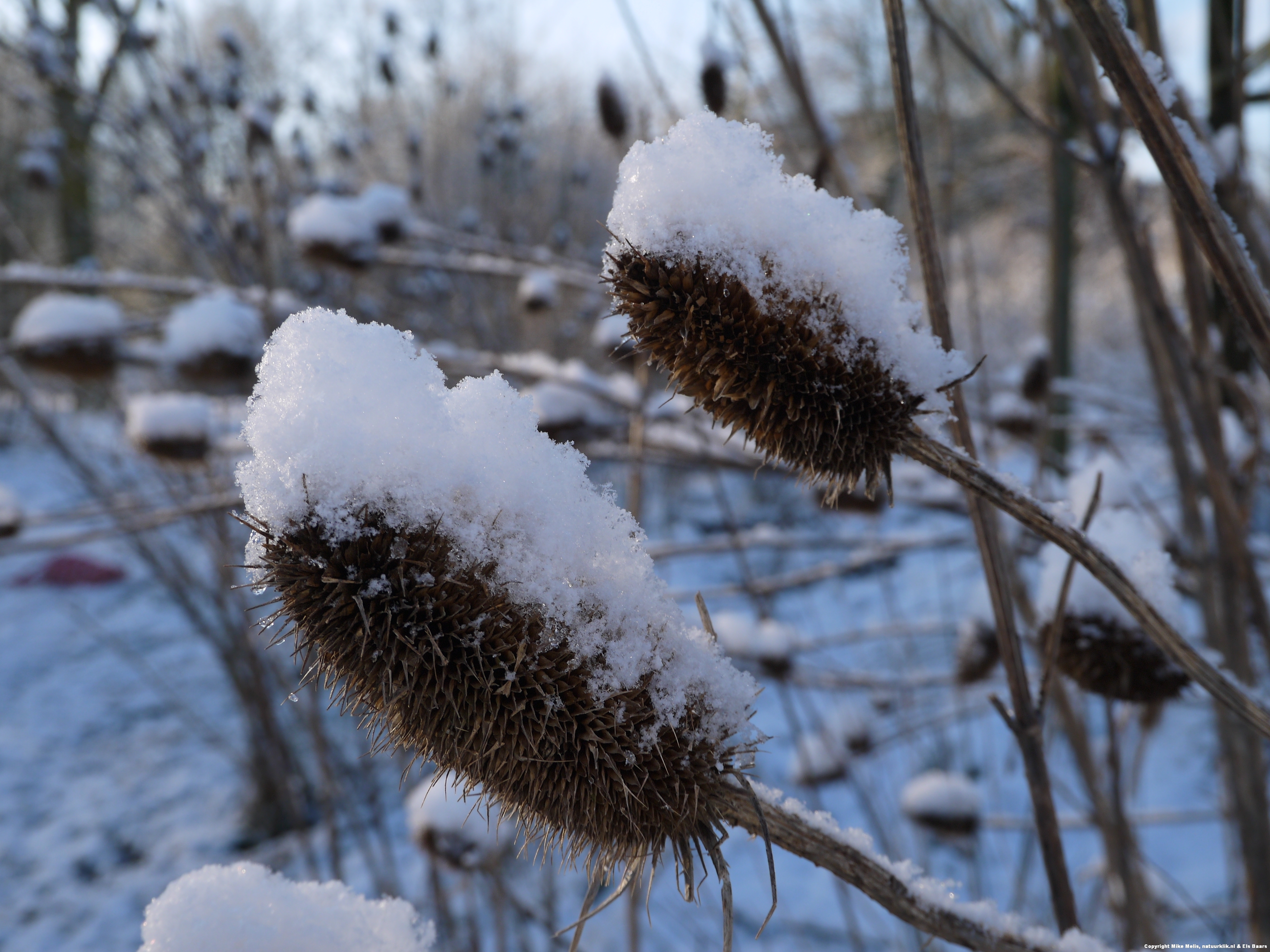In the winter you will often see card teasels standing out above the otherwise barren landscape. Angels gave a poor man card teasels to thank him for his hospitality. The reason why these delegates from heaven were grateful will become clear to you in this Arabian saga:
A long long time ago someone knocked on the door of a small rickety cottage. Surprised at having visitors at such a late hour, the inhabitant of this very humble dwelling opened the door. In front of him stood two travel worn men. The shorter of the two asked: “O kind sir, would you have a place for two tired travellers to rest our weary bones for the night? Being a hospitable soul he invited the strangers in and shared his scant supply of food with them and made space for them to sleep in his small home. The travellers stayed for a few days, so that his already meagre food supply was finished. On the third evening the poor man felt ashamed when he apologized to his guests: “I would like to be hospitable, but I am only a poor man. Unfortunately, I can offer you, my guests, no more meals. All the food there was has been eaten. I can only suggest that you knock on the door of my neighbour. He is a rich man. “ But at the door of the rich neighbour’s white stone house the travellers were simply given a few coins. The two men went on their way. From behind their windows both the rich and the poor man watched how the travellers walked off down the dusty track and then … suddenly they saw how the two suddenly turned into two angels and came back to the houses. The angels gave the poor man a small packet of seeds and the rich man a larger packet of seeds. With great expectations both men immediately scattered the seeds on their land and waited excitedly to see what would grow from these heavenly seeds. The inhospitable man saw how beautiful flowers grew from his seeds. But they only flowered for one day. “These flowers aren’t only no good for selling,” he said angrily, “but they also grow like weeds and smother all my other crops.” Within a few years he was a poor man.
The hospitable man was also disappointed: “My good angels, why have I been given these seeds?” They only produce tall thistles with prickly spikes. What can I do with them? The flowers aren’t even beautiful to look at and the spikes have these strange layers of small blue flowers.” One night he saw the two angels again in his dreams and they gave him a message: “Load the thistle heads into your card and sell them at the market in the town to the sheep farmers. Tell them that these will make carding their wool a far easier task.” The next day the man set off brimming with expectation and a cart loaded high with prickly flower heads to the big market. To his amazement he returned home that evening with a lot of money in his pocket. So within a few years he became a rich man. Ever since then sheep farmers have carded wool with these flower heads which people commonly referr to as card teasels.
The Latin for card teasel is ‘Dípsacus fullónum’. ‘Dipsacus’ means drinking beaker: the leaves on the flowering stem are fused around the stem forming a small cup in which rainwater collects: small creatures such as insects drink out of this. On the underside of the leaves’ midrib and on the stems there are a lot of nasty spines. The numerous small flowers grow in a common flower head and are shaped like a prickly ball. The flowering is very special: the first light blue-purple flowers open in a belt around the middle of the flower head and then continue to open sequentially: upwards toward the top and downwards to the bottom, forming two narrow belts as the flowering progresses. Many bees, butterflies and hoverflies extract honey from the small flowers. The withered plant remains standing for months on end and adds beauty to the barren landscape of winter.
© Els Baars, Natuurverhalen.nl

